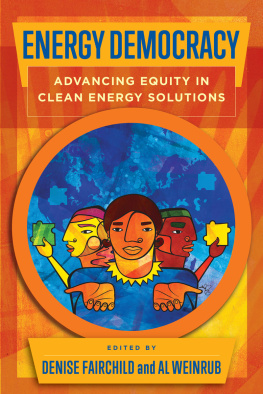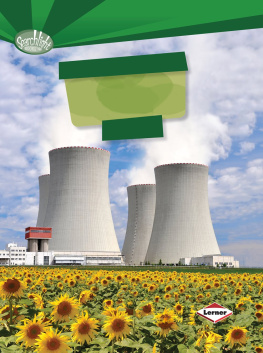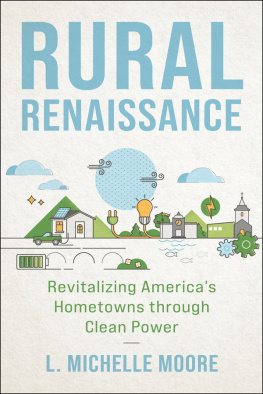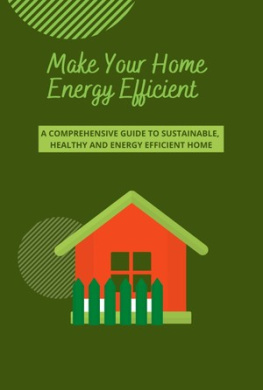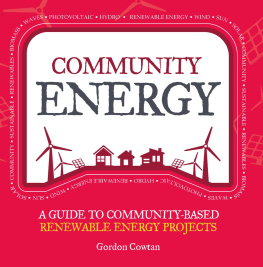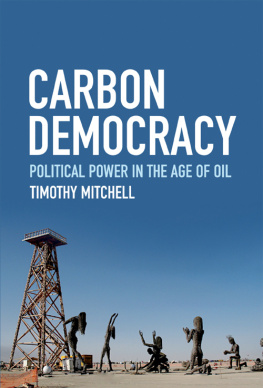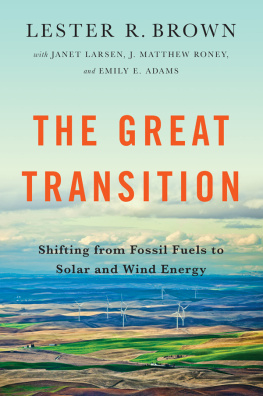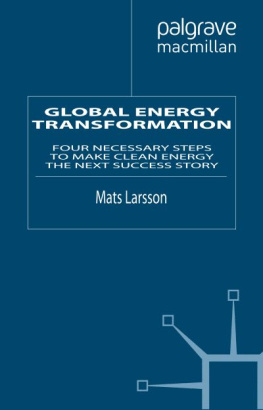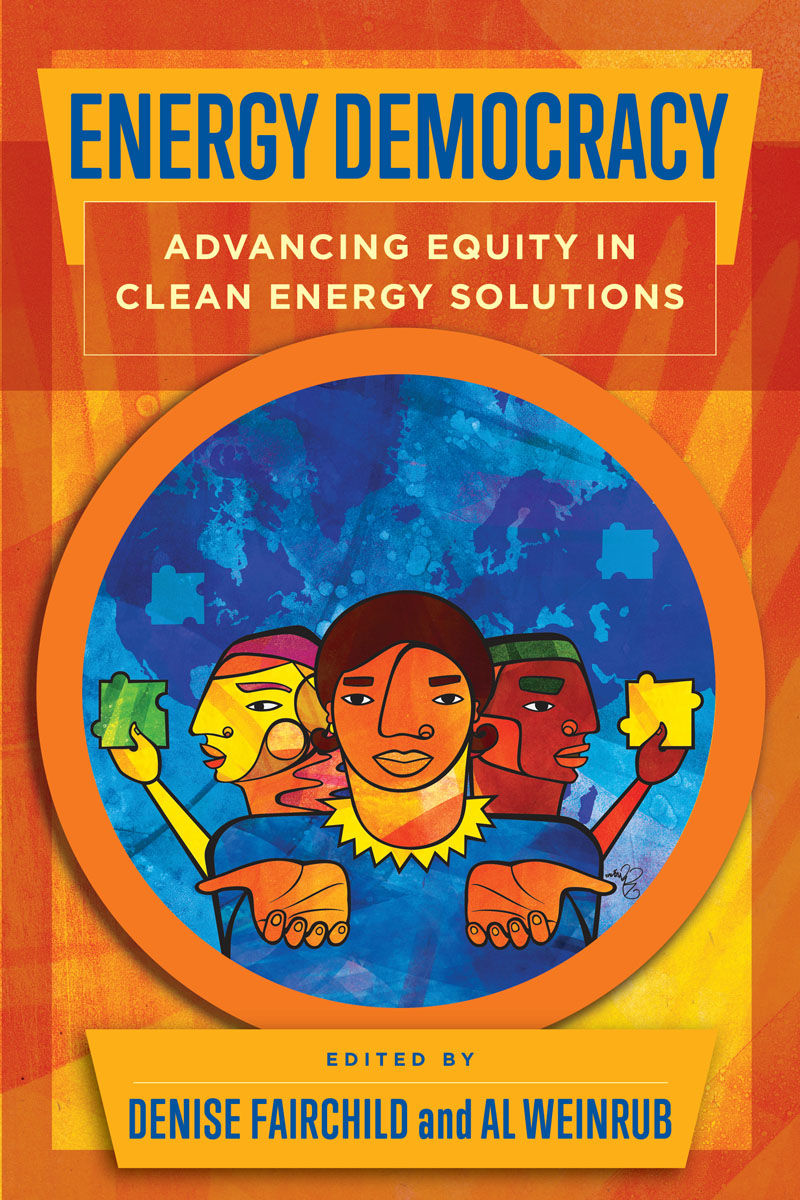
About Island Press
Since 1984, the nonprofit organization Island Press has been stimulating, shaping, and communicating ideas that are essential for solving environmental problems worldwide. With more than 1,000 titles in print and some 30 new releases each year, we are the nations leading publisher on environmental issues. We identify innovative thinkers and emerging trends in the environmental field. We work with world-renowned experts and authors to develop cross-disciplinary solutions to environmental challenges.
Island Press designs and executes educational campaigns in conjunction with our authors to communicate their critical messages in print, in person, and online using the latest technologies, innovative programs, and the media. Our goal is to reach targeted audiencesscientists, policymakers, environmental advocates, urban planners, the media, and concerned citizenswith information that can be used to create the framework for long-term ecological health and human well-being.
Island Press gratefully acknowledges major support of our work by The Agua Fund, The Andrew W. Mellon Foundation, The Bobolink Foundation, The Curtis and Edith Munson Foundation, Forrest C. and Frances H. Lattner Foundation, The JPB Foundation, The Kresge Foundation, The Oram Foundation, Inc., The Overbrook Foundation, The S.D. Bechtel, Jr. Foundation, The Summit Charitable Foundation, Inc., and many other generous supporters.
The opinions expressed in this bookare those of the author(s) and do not necessarily reflect the views of our supporters.

Island Press mission is to provide the best ideas and information to those seeking to understand and protect the environment and create solutions to its complex problems. Join our newsletter to get the latest news on authors, events, and free book giveaways. Click here to join now!

Copyright 2017 Island Press
All rights reserved under International and Pan-American Copyright Conventions. No part of this book may be reproduced in any form or by any means without permission in writing from the publisher: Island Press, 2000 M Street, NW, Suite 650, Washington, DC 20036
Island Press is a trademark of The Center for Resource Economics.
Library of Congress Control Number: 2017935090
All Island Press books are printed on environmentally responsible materials.
Manufactured in the United States of America
10 9 8 7 6 5 4 3 2 1
Keywords: Centralized renewable energy, clean energy, climate activism, climate change, climate justice, climate solutions, community development, community power, decentralized renewable energy, economic development, economic justice, ecosystem, energy, energy activism, energy commons, energy cooperatives, energy democracy, energy equity, energy sources, energy transition, environmental activism, environmental justice, just transition, labor unions, new economy, racial justice, regenerative economy, renewable energy, resilient communities, social equity, social justice, sustainable economy
Contents
Prologue
We put this book together to shine a spotlight on efforts to democratize energy in the United Statesto give voice to the organizations and individuals leading the way to a transformed energy future. We hope that by giving expression to their vision, strategies, organizing efforts, and development models we will inspire others to join the growing energy democracy movement.
We were propelled by the urgent necessitythe existential necessityfor human society to create a new kind of energy future. The growth and dominance of fossil fuel energy over the last 150 years has had profound adverse environmental, economic, and social impacts. As a result, our very survival hangs in the balance.
We wanted this book to look critically at how our use of energy has driven ecosystem destruction, economic insecurity, and social injustice, and, at the same time, we hoped that it would promote the new energy paradigm and decentralized energy model needed for a sustainable future.
This is the work of the energy democracy movement.
We see this work as of utmost importance at this critical moment in history. Driven by a changing climate, the transition from fossil fuels to renewable energy is creating uncertainty and panic for the energy establishmentthe large corporate energy producers, utility monopolies, and federal and state government agencies that serve the status quo. At the same time, the global economic system, wracked by instability, portends increasing economic insecurity for all but the wealthiest 1% of the population. And with this upheaval on the climate and economic fronts, we are witnessing the failure of the political establishment to offer a viable energy alternative.
All of this sets the context for a book that describes the way forward for a revolutionary movement in energy, one that wrests control and ownership of energy resources out of the hands of the energy establishmentdemocratizing energy and making it a vital resource for advancing the environmental, economic, and social justice needs of our communities.
Difficult as this challenge already was, the November 2016 election made it even more so. If the goal of this book was compelling before the right-wing takeover of the federal government, it is even more urgent now. The desperate acts of the current federal government to breathe new life into a dying fossil fuel economy, foment racial intolerance, reassert U.S. military dominance, eliminate health and other protections, and otherwise bow to corporate interests underscore the need to strengthen and empower our communities. Community control of energy resources will be a critical aspect of resistance to the right-wing agenda.
As we demonstrate in this book, confronting race, racial discrimination, and racial oppression is central to developing a sustainable, decentralized energy alternative. Moreover, the leadership of people of color is key to building a powerful energy democracy movement.
Recent events put this perspective in sharp relief.
The first is the central role of racism in engineering the right-wing takeover of the federal government, all in the interest of the most extreme rogue fossil fuel sector, whose agenda is to lay waste to the ecosystem at all costs. The 1% used race-baiting tacticsboth subtle and blatant, anti-Muslim, anti-black, anti-Latino, and anti-immigrant fear mongeringthroughout the presidential campaign to achieve unprecedented control and dominance over the environmental and economic survival needs of the 99%. Racism in the service of human extinction.
The second is the historic struggle at Standing Rock to assert the rights of indigenous communities to clean water, taking on an oil industry hell-bent on intensifying the climate crisis. The struggle against the Dakota Pipeline was supported by Black Lives Matter, environmental justice organizations, and many others who understand how the fossil fuel economy targets people of color. More significantly, the struggle also drew the support of other organizations and individualsfrom environmentalists, to unionists, to antiwar veteranswho see how their fate is tied to the fate of people of color. There is a growing and heartening recognition, not only within racial and ethnic groups, but among broad communities across America, that, in fact, not one of us is freeor safeunless all of us are.
Next page
